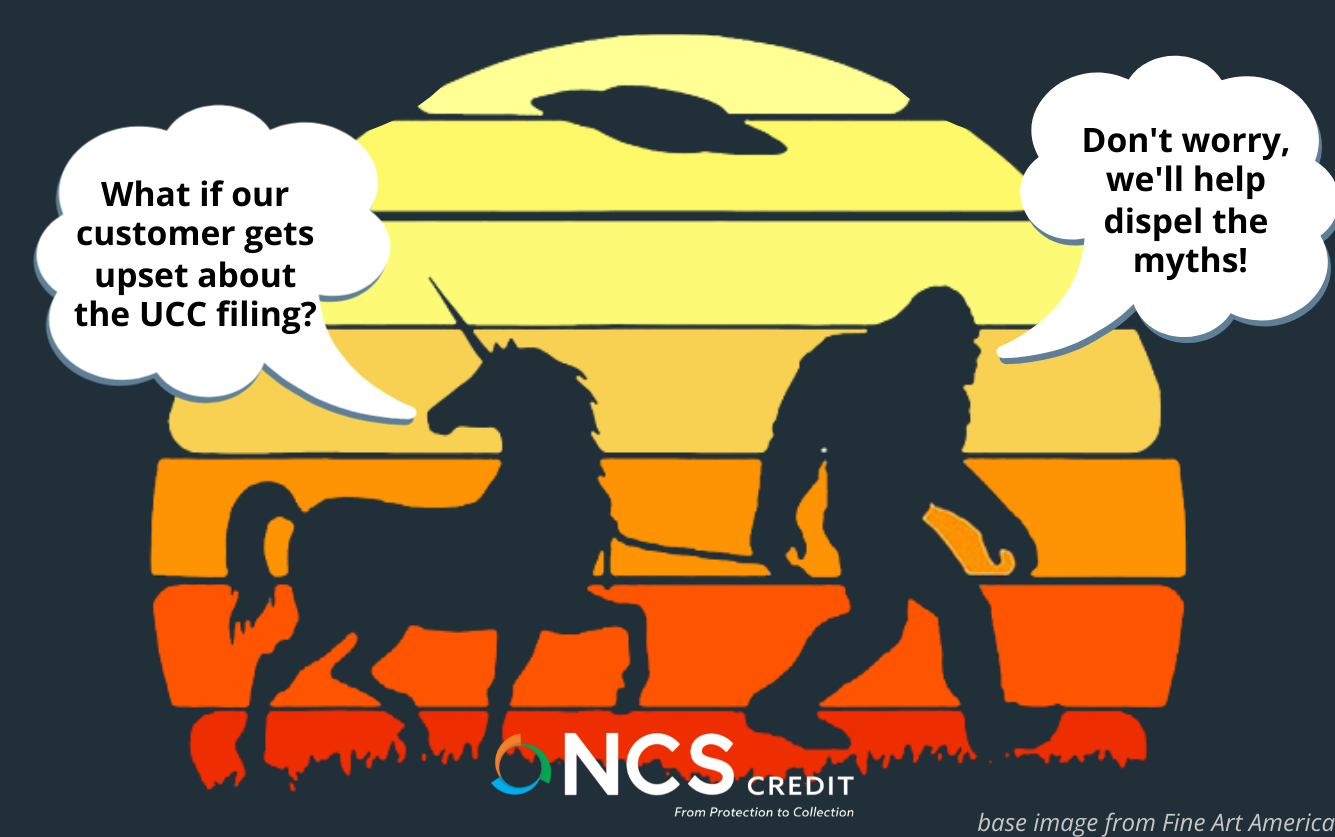The 6 Myths of UCC Filings: Big Foot, a Unicorn, and a UCC Financing Statement All Walk into a Credit Conference
No, wait – not the right joke.
Let’s try again. Big Foot, Unicorns & UCC filings all have one thing in common: crazy myths surrounding their existence and, in the case of the UCC filing, crazy myths about their effectiveness.
While I’m not an expert on Big Foot and I think Unicorns are pretty, one thing I do know is the immense benefit UCC filings bring to your credit process. Today, I would like to dispel some of the age old myths about UCC filings.
Myth 1: “It’ll never work. I’ll always be behind the bank & never get paid.”
Fact: Bank relationships change – i.e. refinance. You may find you need to subordinate to a bank, but you will still remain ahead of other secured creditors.
Myth 2: “My customer’s bank won’t let them sign the security agreement.”
Fact: The bank should not have a problem with you being a secured creditor, however, the bank may request that you subordinate.
Myth 3: “The UCC filing will hurt my customer’s credit rating.”
Fact: UCC filings do not impair your debtor’s credit rating. The filings will appear on the credit report, but simply to provide confirmation that another creditor has a secured position or that you pledged collateral for trade credit.
Myth 4: “If I ask my customer to sign a security agreement, they are going to leave me & buy from a competitor that won’t ask them to sign a security agreement.”
Fact: Are you 100% positive your competitors are not filing UCCs or, at the very least, including security language in their agreements? The truth is, company’s everywhere file UCCs, and it’s a normal aspect of doing business. Reassure your concerned customer that the UCC filing simply allows you (the vendor) to be a secured creditor in the unlikely event they file bankruptcy.
Myth 5: “Eh, it’s not worth the money or the hassle!”
Fact: Hassles? You don’t need no stinkin’ hassles! This is why there are companies, like NCS, who will handle the “hassles” for you.
We can cultivate your collateral description, review your agreement to ensure it contains important aspects like the granting clause, pull the articles to confirm your debtor’s name & jurisdiction, process the actual filing, monitor the filing for expiration & monitor your customer for changes with the secretary of state.
You’re right, it may seem like a hassle to you, but to us it’s second nature. A minimal fee could save you hundreds of thousands of dollars in the event your debtor defaults.
To be a secured creditor or not to be, that is the question. Nah, there is no question because you should always be a secured creditor.
Myth 6: “A UCC filing will make me sprout a horn, grow fur & give me magical powers with glitter!”
Fact: OK, you got me there.
The Bottom Line
UCC filings are magical; UCCs grant you a security interest and put you in the best possible position to get paid, in the event your customer defaults.
Take the smart step and become a secured creditor, and don’t believe all the mythical malarkey surrounding their effectiveness.
NCS Credit Is Your UCC Filing Expert
We are UCC experts and we can help you implement a full service UCC Filing Program. Need help with a single filing? We do that too! Contact us today.
Editor’s Note: This content was originally published in May 2014. It has since been updated and revised for 2023.
